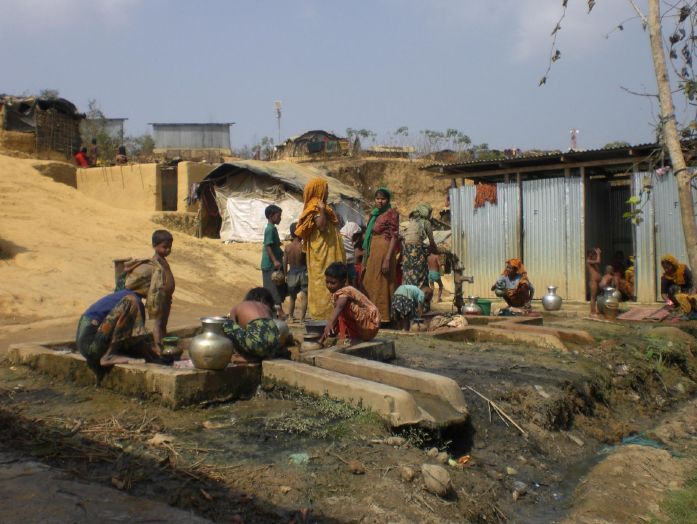 The report was released by the Irish Centre for Human Rights, NUI Galway on 16 June 2010.
The report was released by the Irish Centre for Human Rights, NUI Galway on 16 June 2010.
“For decades now, the Rohingya minority group has endured grave human rights violations in North Arakan State. Every day, more Rohingya men, women and children are leaving Burma, fleeing the human rights abuses in the hope of finding peace and security elsewhere,” said Professor William Schabas, director of the Irish Centre for Human Rights, NUI Galway.
Comprehensive investigation
The Report is based on extensive open-source research and on a fact-finding mission to Burma, Thailand and Bangladesh conducted by experts in international criminal investigation.
As well as interviewing organisations working in the region, investigators met with Rohingya victims in and around refugee camps in Bangladesh.
The Rohingyas’ plight has been overlooked for years and the root causes of their situation still remain under-examined. The Irish Centre for Human Rights’ Report identifies and discusses some of these causes.
Crimes against humanity
The report examines whether the apparent cases of enslavement, rape and sexual violence, deportation or forcible transfer of population, and persecution against the Rohingyas may constitute crimes against humanity.
“Describing the violations as crimes a gainst humanity raises the possibility that cases against those Burmese officials who are responsible could be referred to the International Criminal Court”, Professor Schabas explained.
gainst humanity raises the possibility that cases against those Burmese officials who are responsible could be referred to the International Criminal Court”, Professor Schabas explained.
The report affirms that people committing, allowing, aiding and abetting these crimes must be held accountable. The international community has a responsibility to protect the Rohingyas, to respond to the allegations of crimes against humanity and ensure that violations and impunity do not persist for another generation, concludes the report.
The report recommends the Security Council establish a Commission of Inquiry to determine whether there is a prima facie case that crimes against humanity have been committed. There have been similar recent comments by UN Special Rapporteur on Burma, Tomás Ojea Quintana.
The Irish Centre for Human Rights, NUI Galway, is one of the world’s leading university-based human rights research centres. The Centre, which marks its tenth anniversary this year, is dedicated to teaching, research and advocacy in the field of human rights.
The report is available here.
Contact
Irish Centre for Human Rights (+353 91 493609) humanrights@nuigalway.ie
Background
The Rohingya is a Muslim ethnic group of the Northern Arakan State of Western Burma. he Rohingya population is mostly concentrated in two bordering townships of Arakan to Bangladesh. Total population is about 729 000 (UN estimate 2009).
Conquered by the Burmese in the early nineteenth century, the Rohingya have been treated more like a subjugated minority than as  members of Burmese society. In 1982, the Burmese government stripped the Rohingya of their citizenship, codifying an ongoing campaign to encourage them to leave the country. Official Burmese government policy on the Rohingya is repressive.
members of Burmese society. In 1982, the Burmese government stripped the Rohingya of their citizenship, codifying an ongoing campaign to encourage them to leave the country. Official Burmese government policy on the Rohingya is repressive.
The Rohingya are one of the world’s most persecuted and forgotten people. Despite decades of severe repression, there has been minimal international response to the needs of this extremely vulnerable population compared to other Burmese refugees.
In 1992, 250,000 Rohingyas, which is a third of their population, fled over Burma’s border into Bangladesh to escape the persecution. Fourteen years later more than 20,000 of them are still in the same refugee camps and around 100,000 more are living illegally in harsh conditions in the surrounding area.
Find out more about the Rohingya here (BBC), here (Wikipedia), here (Refugees International). Here is the website of Arakan Rohingya National Organisation.
HRH Oslo, based on Irish Centre for Human Rights press release, BBC and Refugees International information.
Related links:
Karen Communities Worldwide call for action to stop attacks on civilians





